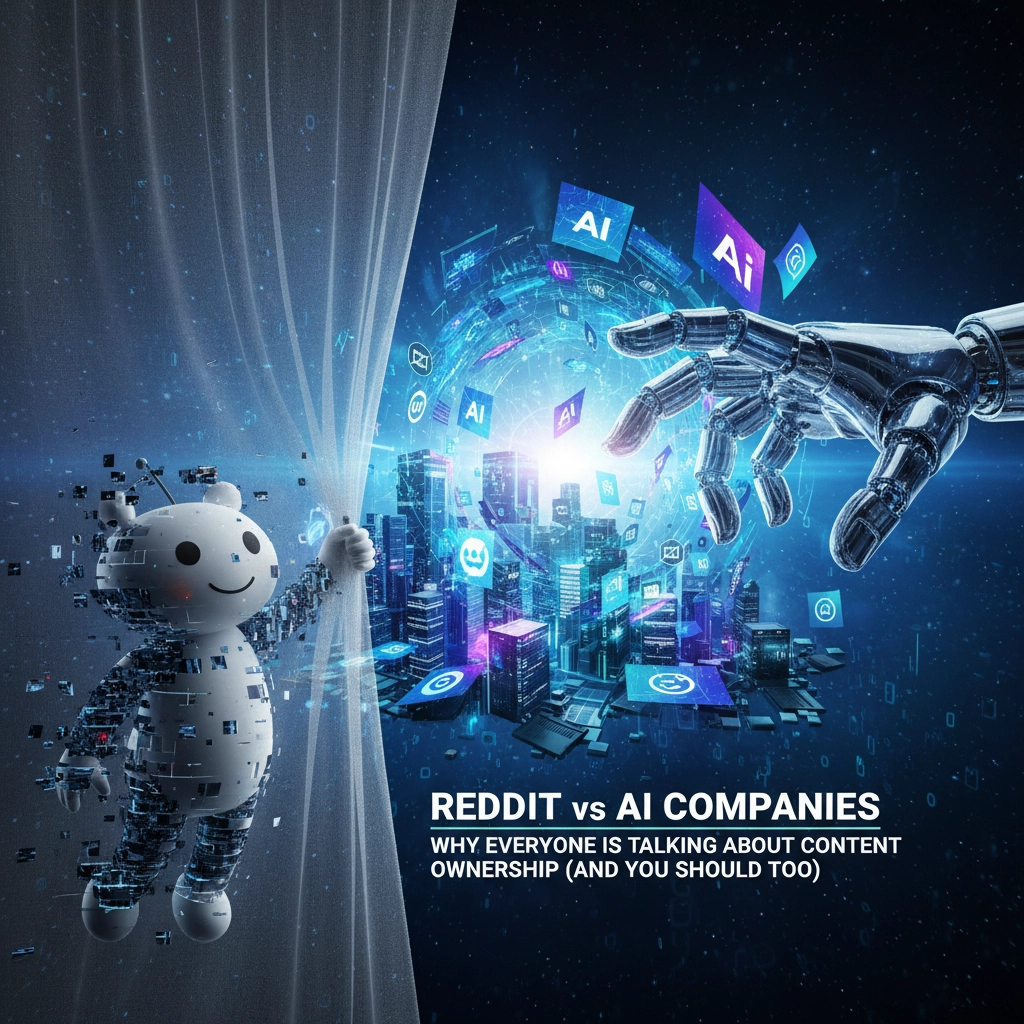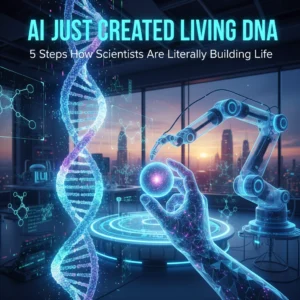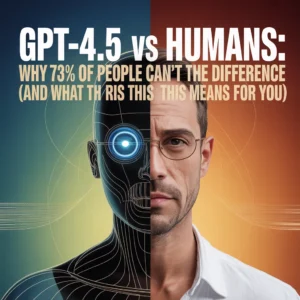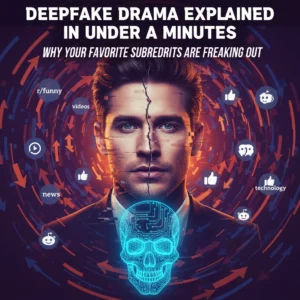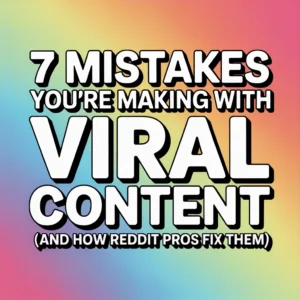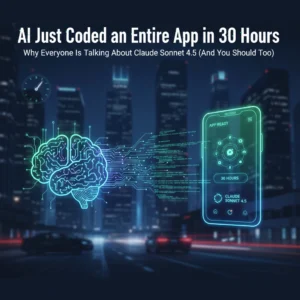Ever wonder what happens when tech giants think they can just take whatever they want from the internet? Well, Reddit's about to show them.
On October 22nd, Reddit dropped a legal bombshell that's got everyone talking. They sued Perplexity AI and several other data-scraping companies for basically stealing their content to train AI systems. And honestly? It's about time someone drew a line in the sand.
This isn't just another corporate lawsuit that'll disappear into legal limbo. This case could completely reshape how AI companies operate and who actually owns the stuff we post online. Let me break down why this matters way more than you might think.
The Great Data Heist: What Actually Happened
Picture this: You're running a community where millions of people share their thoughts, experiences, and knowledge every single day. Then some tech company decides they'll just copy all of it without asking. That's exactly what Reddit claims happened.

According to the lawsuit, Perplexity AI got pretty creative about bypassing Reddit's rules. They rotated IP addresses, masked their identities, and used Google's search cache to scrape billions of Reddit posts, comments, images, and videos. It's like sneaking into a movie theater through the back door, then selling tickets to other people.
The smoking gun? Reddit set up a test post that was only accessible through Google but nowhere else. Within hours, Perplexity's AI was quoting substantial chunks of that post. Busted.
But here's the kicker – Reddit had already sent Perplexity a cease-and-desist letter back in May 2024. Instead of backing off, Perplexity's citations of Reddit content increased by 4,000%. That's not an accident; that's a middle finger.
The Money Trail: Why Licensing Actually Matters
Here's where things get really interesting. Reddit isn't just complaining into the void – they've got receipts showing their content is worth serious money.
In 2024, Google paid Reddit $60 million for the right to use their data. Then OpenAI came along in 2025 with a $70 million deal. That's $130 million total, representing about 10% of Reddit's entire annual revenue. Not exactly pocket change.

This completely destroys the "but it's free on the internet" argument. Two of the biggest tech companies in the world already agreed that Reddit's content has substantial commercial value. When Perplexity decides to just take it for free, they're not operating in some legal gray area – they're circumventing an established market.
Think of it this way: if your neighbor can buy concert tickets for $100, you can't just sneak in and claim the music should be free because you can hear it from outside.
Beyond Copyright: Reddit's Smart Legal Strategy
Most people expect this to be a straightforward copyright case, but Reddit's lawyers are smarter than that. They're using the Digital Millennium Copyright Act's anti-circumvention provisions instead.
Why does this matter? Copyright cases get bogged down in "fair use" debates that can go either way. But anti-circumvention claims focus on how someone accessed the content, not what they did with it afterward.
The key elements Reddit is highlighting:
• Technical circumvention – Rotating IP addresses to avoid detection
• Deliberate evasion – Ignoring robots.txt files that explicitly say "don't scrape this"
• Commercial exploitation – Using the stolen content to build a profitable AI service
• Continued violations – Ramping up scraping after receiving legal warnings
It's like the difference between arguing whether photocopying a book is fair use versus proving someone broke into the library after hours to do it. One's a philosophical debate; the other's clearly illegal.
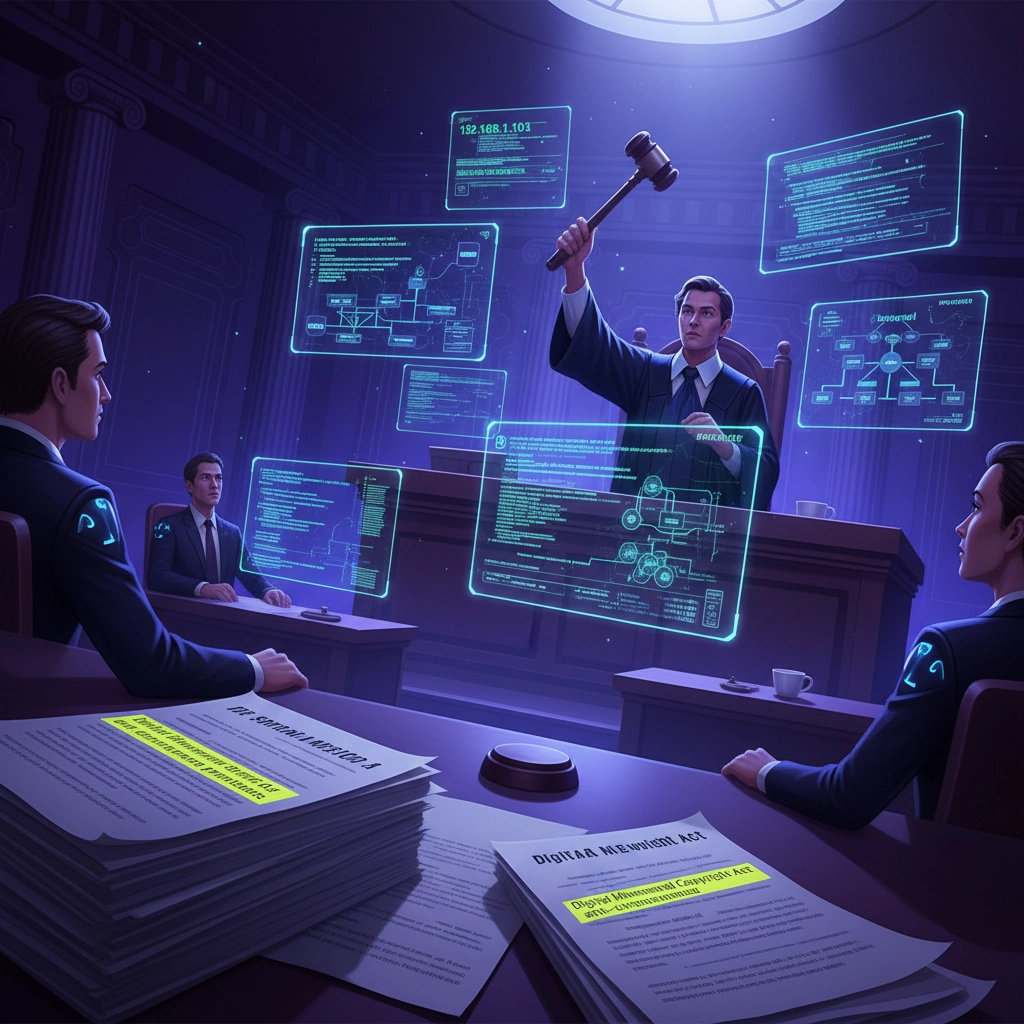
Why This Affects You (Even If You Don't Use Reddit)
I know what you're thinking: "I don't post on Reddit, so why should I care?" But this case is about way more than one website's business model.
Every time you write a review, comment on a post, share an opinion, or contribute to any online community, you're creating content. Until now, tech companies have operated under the assumption that anything publicly visible is fair game for AI training. Reddit's lawsuit challenges that entire premise.
Let me tell you about Sarah, a freelance writer who spent years building up her expertise on various forums and platforms. She shared detailed insights about her industry, helped newcomers, and built a reputation through thousands of thoughtful posts. Now she discovers that AI companies have used all of her contributions to train systems that compete directly with freelance writers. She never consented to this, never got paid for it, and now faces AI tools trained on her own expertise.
That's the real issue here – whether companies can profit from collective human creativity without consent or compensation.
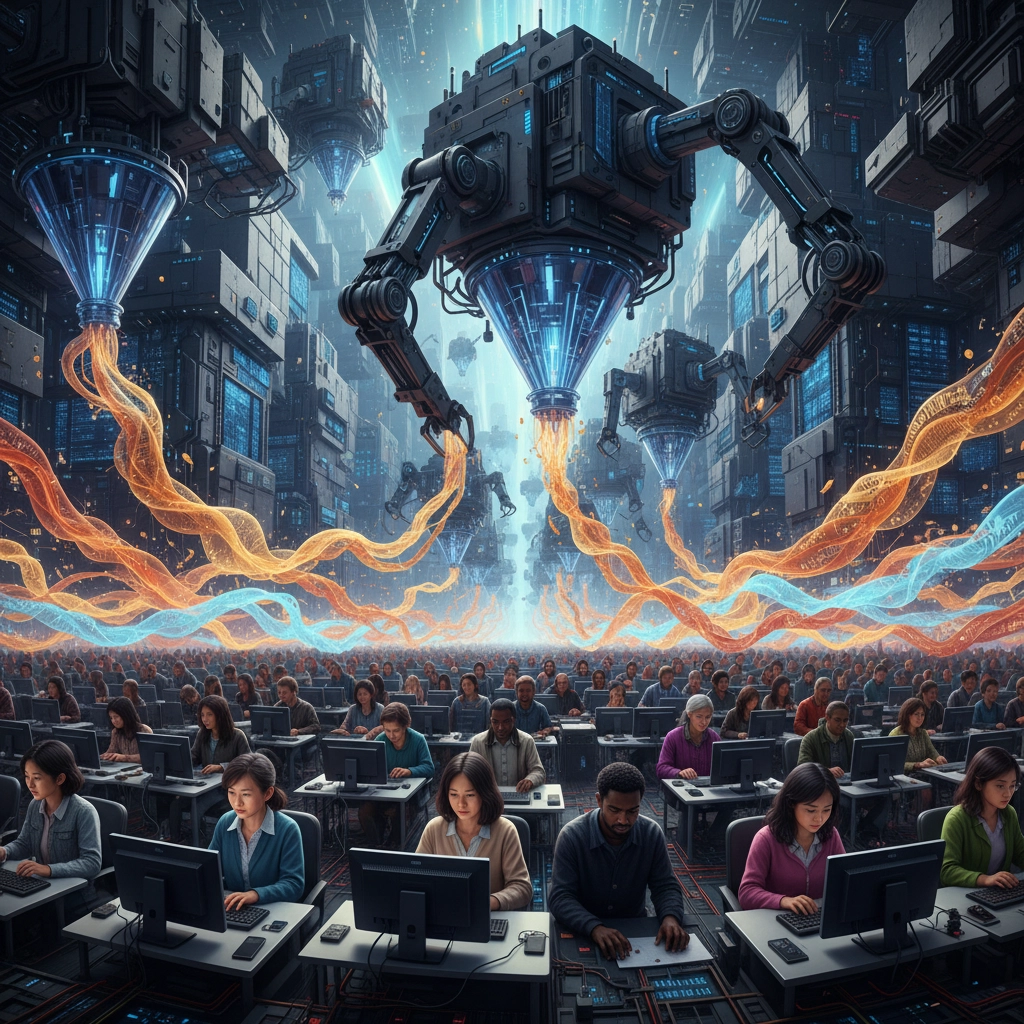
The bigger question is about digital commons and fair participation. When millions of people contribute to online communities, they're creating something valuable together. If that collective creation gets harvested to build commercial products without anyone's permission, what incentive do people have to keep participating?
What Happens Next Could Change Everything
If Reddit wins this case, the implications go far beyond one company's revenue stream. We could see a fundamental shift in how AI companies operate.
Instead of treating the internet as a free buffet, AI developers might need to:
- Verify they have permission before using any content
- Enter legitimate licensing agreements for user-generated content
- Prove their data sources are ethically obtained
- Face real consequences for circumventing access controls
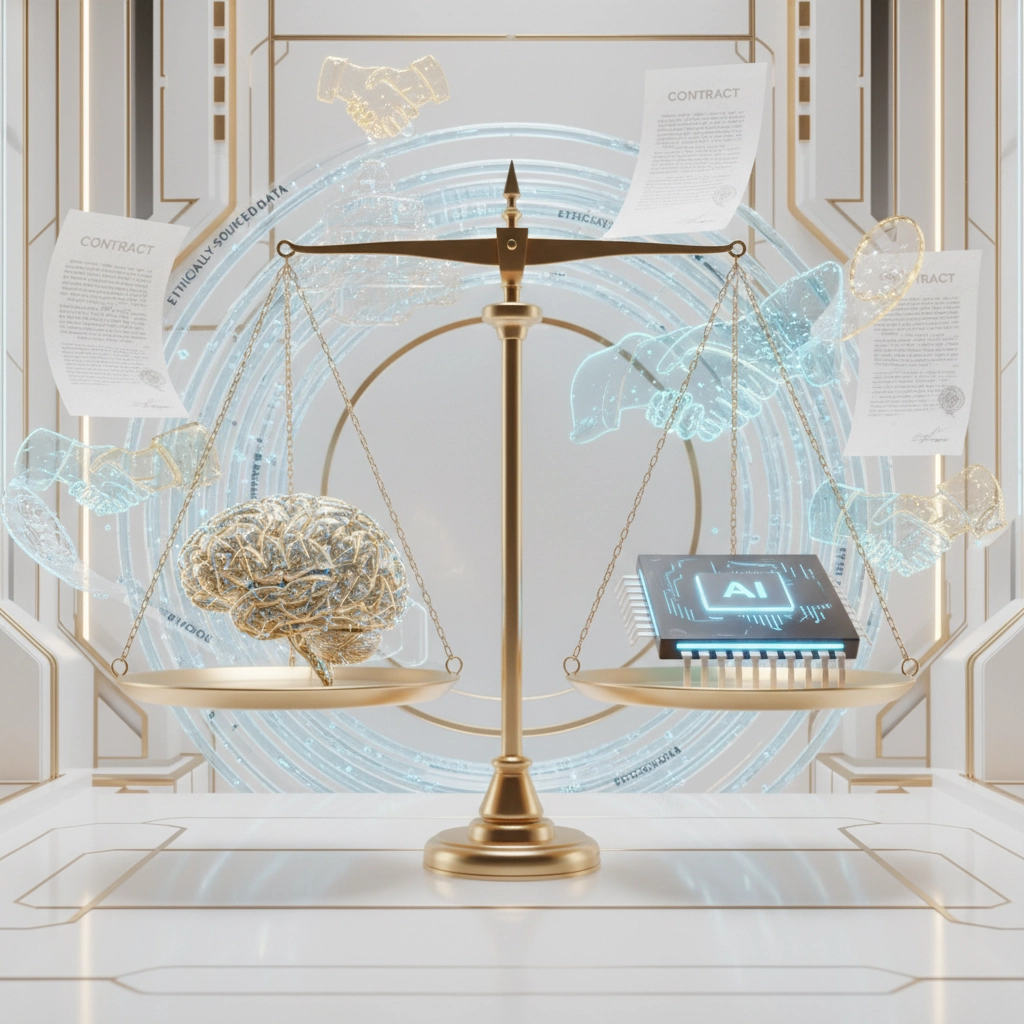
This wouldn't kill AI development, but it would force companies to be more transparent and fair about where their training data comes from. Imagine AI companies actually having to compensate the communities and creators whose work makes their systems possible.
The case also raises fascinating questions about the future of online communities. If user-generated content becomes a valuable commodity that requires licensing, how do platforms balance openness with protecting their users' contributions?
Some experts think this could lead to more "walled garden" approaches, where platforms make content less accessible to preserve its commercial value. Others believe it might create new revenue-sharing models where active community members actually get compensated when their contributions are used to train AI.
The Bottom Line
Reddit's lawsuit isn't just about one company protecting its business model. It's about establishing that human creativity and collective knowledge have value that can't just be appropriated without permission.
Whether you love or hate Reddit, whether you think AI training should be free or paid, this case will help determine the rules for how artificial intelligence develops in the future. It's asking a fundamental question: in the age of AI, who owns human expression?
The answer could reshape everything from how we participate in online communities to how AI companies build their next generation of tools. And honestly, it's about time we had this conversation.
What do you think – should AI companies be able to use any public content for free, or do creators and communities deserve a say in how their contributions are used?

